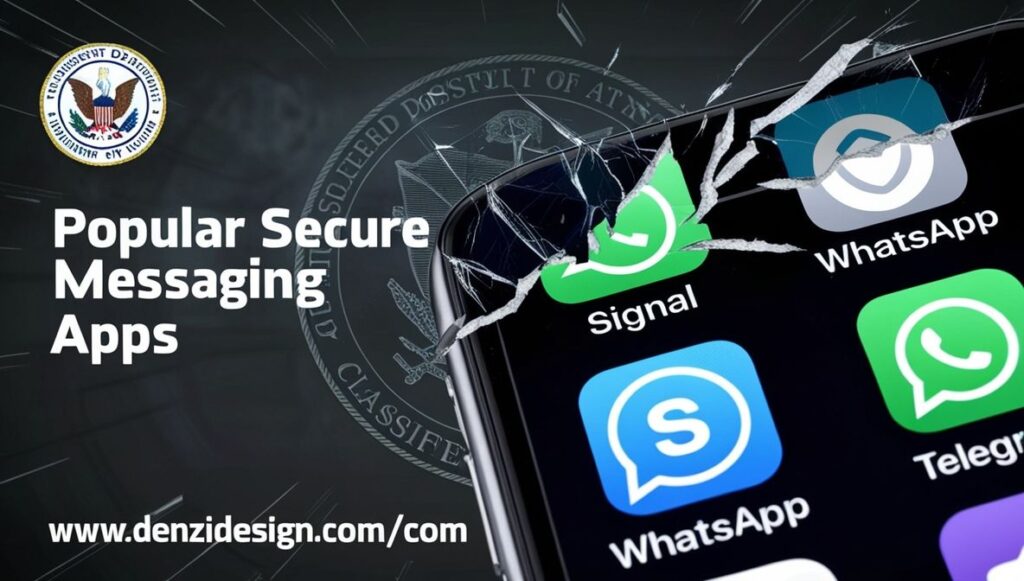Secure messaging apps have earned a reputation as the go-to choice for private conversations, promising safety through strong encryption. However, recent revelations from the NSA warning reveal that the biggest risks often come from user behavior risks rather than flaws in the apps themselves. Many people overlook how easily their settings and habits can expose sensitive data, turning trusted platforms into potential targets.
Understanding these messaging app vulnerabilities is crucial in today’s world of digital espionage threats and growing smartphone security risks. Whether you use Signal, WhatsApp, or another app, knowing how to adjust your privacy settings and guard against account replication vulnerability can make all the difference in keeping your messages truly secure.
NSA Warning Highlights User Vulnerability Over App Flaws
The NSA stresses that secure messaging apps like Signal and WhatsApp aren’t inherently broken. Instead, hackers exploit weak points caused by user behavior risks and poor configuration. From unauthorized device access to careless use of features like Linked Devices, the danger often lies in how people set up and manage their accounts. This means protecting yourself isn’t just about choosing the right app but also about how carefully you lock it down.
Why End-to-End Encryption Isn’t the Whole Story
Most users believe that end-to-end encryption guarantees complete privacy. While it encrypts message content, it doesn’t hide metadata or prevent attacks on your device. Hackers can still leverage account replication vulnerability and intercept messages if they gain access through linked devices or weak phone security. This gap is where smartphone security risks come into play, making operating system updates and app level protections essential.
Signal App Security: What You Need to Know
Signal enjoys a reputation for top-notch privacy, but even it isn’t immune to vulnerabilities. The NSA has warned about Signal account breaches tied to careless use of the Linked Devices feature and weak app PIN protection. Additionally, group invite links pose risks if users share them too freely. Thankfully, Signal lets you unlink unknown devices and disable group invites, but you must take these actions yourself.
WhatsApp Security Concerns and Best Practices
WhatsApp’s popularity makes it a prime target for cyber attackers. Despite end-to-end encryption, the app has suffered from exploits involving group chats. Using admin-only WhatsApp group invites can limit exposure, and adjusting contact and status privacy settings reduces the risk of unwanted access. The NSA also flags WhatsApp’s Linked Devices feature as a potential vector for digital espionage threats, especially for high-profile users.
Real-World Threats: Russian GRU Hacking and Military Leaks
The NSA’s warning isn’t hypothetical. Intelligence agencies have linked Russian GRU hacking campaigns to breaches of Ukrainian officials’ Signal accounts, resulting in classified military leaks. These incidents show that secure chat compromises can have serious geopolitical consequences. For everyday users, this means taking cyberattack prevention seriously and treating your secure messaging apps like a frontline defense.
How to Harden Your Messaging App Settings Right Now
Improving your app security means acting on several fronts:
| Action | Why It Matters | How to Do It |
|---|---|---|
| Enable Screen Lock on apps | Blocks unauthorized access if phone stolen | Use built-in app PIN or biometric lock |
| Unlink Unknown Devices | Prevents device replication attacks | Regularly check and remove linked devices |
| Disable Group Invite Links | Stops unwanted users joining chats | Use Signal’s option to disable invites or restrict WhatsApp groups to admins |
| Update Operating System & Apps | Fixes security vulnerabilities | Turn on automatic updates for both OS and messaging apps |
| Adjust Privacy Settings | Limits metadata exposure | Set contact, status, and last seen to “Nobody” or “My Contacts” |
Taking these steps reduces your chances of falling victim to app security misconfigurations and the broader phone eavesdropping risks.
Beyond Apps: Strengthen Overall Smartphone Security
Apps don’t operate in a vacuum. Your entire device matters. Keeping your phone’s OS updated, enabling full-disk encryption, and avoiding suspicious downloads reduce your smartphone security risks. Since consumer vs government devices differ in protection levels, regular users must still treat their smartphones as gateways to sensitive information that hackers crave.
FAQs
Does end-to-end encryption guarantee 100% safety?
No. While it protects message content, metadata and device access remain vulnerable.
How does the Linked Devices feature increase risk?
It allows multiple devices to access your account, increasing chances of unauthorized entry if not monitored.
What’s the easiest way to improve messaging app security?
Enable app PINs, unlink unknown devices, and regularly update your phone’s operating system.
Final Look
Secure messaging apps are not as safe as many believe. The real danger often comes from how users handle their settings and devices. Even the best apps can’t protect you if you don’t take simple steps like enabling screen locks or unlinking unknown devices. The NSA warning reminds us that security is a shared responsibility. By staying aware of risks and adjusting your app settings, you can better protect your privacy. Don’t just trust the app trust your actions too. Secure messaging apps work best when you do.

